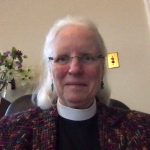Conversation Questions to Use in an Adult Education or Forum Setting
If your setting allows it, break into small groups of 3-5 participants made up of people with similar racial/ethnic experience for the first set of questions. If separate racial/ethnic groups are not possible, break into small groups by going around the room, counting off 1-4, so that people will be more randomly sorted than the group of associates with whom they arrived and would naturally sit.
- Talk in a small group with one or two other people of your same racial/ethnic group, if possible, about experiences you have had with someone who is different from you (racially/ethnically, economically) where you have felt afraid. (10 minutes)
- As you look back now on specific experience(s) you remember and discussed in #1 above, can you imagine that any of the fear you felt was projected fear, that is, fear you felt inside about another because they belonged to a stereotyped “Other” group, that made you more afraid than the actual situation warranted? (See paragraphs 1, 17-21 above) (10 minutes)
Move into a whole group for the remainder of the discussion.
- Share some of the conversation of the small groups with the wider group. (10 minutes)
- If there are people of more than one racial/ethnic group in your group, after everyone has shared on #1 and 2, reflect together on whether you noticed similarities or differences in what was shared by various racial or ethnic groups present. (10 minutes)
- Take a few minutes to scan the article again. Where do you see evidence of what is called “White Privilege”? How would you define what that is? Can you name some examples of White Privilege in your own life? In the life of your community? (10 minutes)
- Name some things in your congregational ministry and community that draw you together across lines of separation or division. Are there some ways you can imagine deepening relationships across those lines in your place? Are there challenges you can identify? What encourages you?


